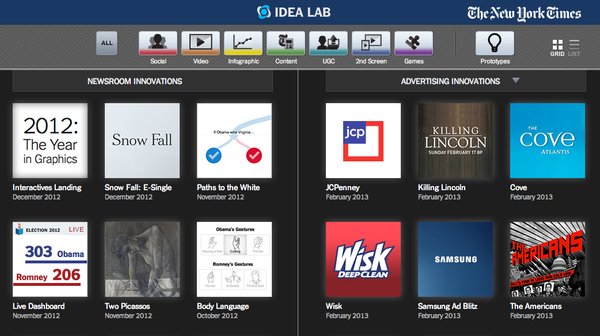Brands
Publishers Poised to Become the New Agencies
The prime commodity in advertising has always been an audience.
In the old days, this made things simple: TV broadcasters, newspapers, magazines, radio stations and billboard people had the audience. Brands had the money, and they gave that money to the advertising agencies. The ad agencies then crafted a pretty message and bought time in front of an audience from the media and billboard people, at a nice profit. Everyone was pretty happy, and you didn’t even need an infographic to explain what was going on.

In the digital age, an audience is still the prime commodity, but the ecosystem is incredibly different. We’ve gone from three types of ads (print image, TV commercial, radio commercial) to an infinite amount of possibilities. After all, anything online can be an ad if it’s done right — a fashion contest, a dancing puppy in space, an annoying banner ad, an infographic. But still, the most important factor in an ad’s success is putting it in front of an audience.
TV and radio ads haven’t changed much; both mediums make it hard to innovate much past giving advertisers 30 seconds to do their thing. But ads have changed dramatically for publishers, who own an audience on the web and are trying everything they can to monetize it. Launching a content marketing agency wing is one strategy that publishers from The Economist to Gawker Media have adopted with great success.
It begs the question: Why shouldn’t publishers become the new agencies? After all, publishers know how to use content to capture a web audience far better than agencies do. They already own an audience and they know what resonates.
Content marketing doesn’t have to be the end-all and be-all of a publisher’s role in a marketing campaigns, either. The Economist Intelligence Unit uses Economist audience data to provide comprehensive strategy and unique insights. Publishers also have a thorough understanding of the display ad game, as the New York Times Ideas Lab’s display ad experiments demonstrate.
With the right staffing and approach, It’s hard to see where agencies outflank publishers. Publishers know how to engage people online and already have an audience ready and waiting. They’re also able to experiment in ways that agencies can’t; just look at Gawker’s vision for a branded discussion platform. There’s a power shift brewing; don’t be surprised when publishers start to take over the marketing world.
Editor’s note: An earlier version of this article mistakenly referred to the New York Times R&D Lab as the originator of the ad experiments instead of the New York Times Ideas Lab.
Get better at your job right now.
Read our monthly newsletter to master content marketing. It’s made for marketers, creators, and everyone in between.




